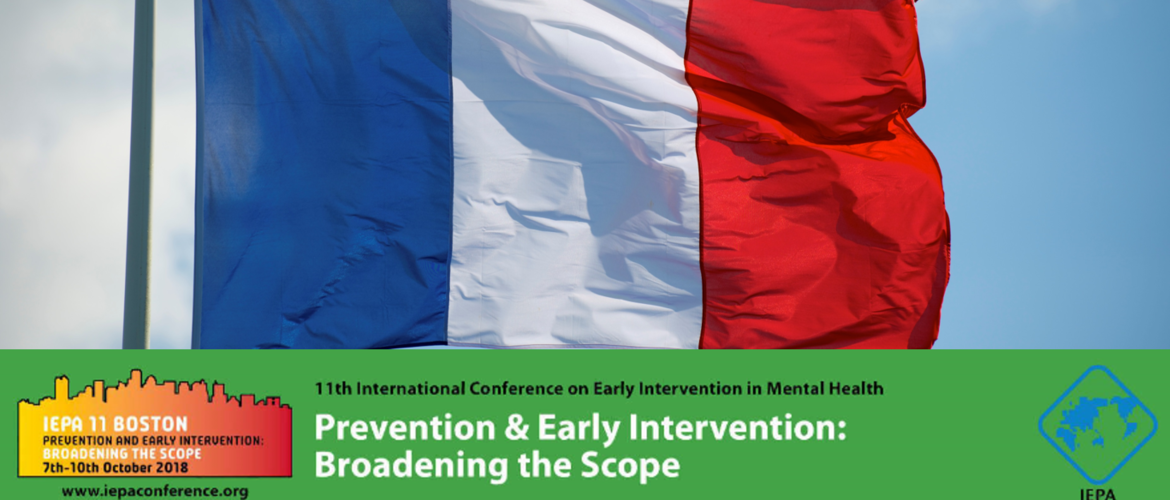
Choose a channel
Check out the different Progress in Mind content channels.

Progress in Mind

Early intervention programs (EIPs) are widely considered to be effective for the treatment of psychosis. In 2017, France had 18 EIPs throughout the country, and a further 19 were being developed or discussed. A critical evaluation of how these important programs successfully aid in patient treatment and recovery will help increasing awareness of EIPs, improving their current and future design, and promoting the development of much-needed new programs.
National policy in France promotes early intervention for people with psychosis;1 however, France does not currently meet national standards of care for EIPs. Various intervention initiatives have emerged throughout France over recent years, but information on these programs is not centralized.1
The aim of the study as reported here from the IEPA 2018 in Boston, Massachusetts, was to create a comprehensive inventory of existing or planned EIPs in France and French overseas territories in 2017, and to describe how they operated in 2016. Dr Guy Gozlan and co-workers from Samsah Prepsy in Paris and CHU de Caen in Normany believe this work is important in order to identify ‘gaps’ in the national EIP program and to encourage the development of new programs.
It is important to identify ‘gaps’ in the national early intervention programs (EIPs) and to encourage the development of new programs
In the first phase of the study, 174 experts/physicians/psychiatrists, healthcare facilities, and administrative institutions were identified throughout France between March 2017 and July of the same year. Of these, 123 were asked to complete an online declarative survey that included questions on structure of attachment, dedicated teams, funding, targeted populations, activities in 2016, partners, difficulties and prospects. In total, 58 responses to the survey were received.
EIPs were included in the inventory if they offered an early, intensive and multidisciplinary approach to intervention, and had the equivalent of at least 0.5 dedicated full-time members of staff (out-patient setting was a secondary criterion).
The surveys identified 37 EIPs that were spread throughout France and French overseas territories. Of these, 18 were already up and running, 8 were being developed, and 11 were being discussed. All programs included patients up to age 35 years and, on average, each program employed the equivalent of 4.3 dedicated full-time members of staff.
The study highlights a need for new practices/modalities of care, a lack of network between initiatives, a need to share information and experiences (including methodological support and training), and a lack of funding
All 18 existing EIPs were run by multidisciplinary teams, including at least one psychiatrist and one nurse; 15/18 programs offered inter-sectoral initiatives, 12/18 offered case management, and 11/18 operated with constant resources. The mean duration of intervention was up to 38 months after the first episode of psychosis, and each program in 2016 included between 10 and 80 patients (mean 42).
Patients were mostly referred to EIPs by healthcare professionals (31.5%), hospital professionals (26.5%) and associations or families (19.9%). Of the 17/18 IEPs that reported the timing of initiatives, all 17 reported taking patients during their first episode of psychosis (FEP), 4 took FEP patients and high-risk patients; 4 took FEP patients and those with chronic pathology and 4 took patients from each of the three categories.
Overall, the study highlights a need for new practices/modalities of care, a lack of network between initiatives, a need to share information and experiences (including methodological support and training), and a lack of funding.
EIP surveys will help improving the visibility of existing IEPs in France and will promote the development of new programs
Limitations of the study include the self-reporting nature of the survey and the date of presentation of results, which implies that some initiatives are functioning today but were not functioning at the time of the study. To address this issue, a new survey will be carried out in 2018.
Together, EIP surveys will help improving the visibility of existing IEPs in France and will promote the development of new programs.